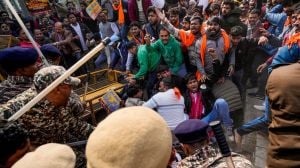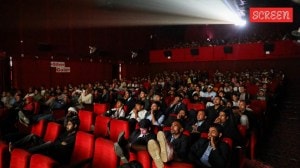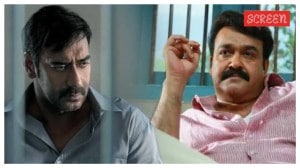When the Sangh comes before the nation 8212; Crisis in the brot
Is there a future in the BJP for any member foolhardy enough to attack the Sangh Parivar? Old-timers in the party recount with awe the ma...

Is there a future in the BJP for any member foolhardy enough to attack the Sangh Parivar? Old-timers in the party recount with awe the manner in which the parivar made an example of Pandit Maulvi Chand Sharma, the second president of the Jana Sangh 8212; the precursor of today8217;s BJP. He was expelled from the party in 1954, reportedly for conniving with then Prime Minister Jawaharlal Nehru against the RSS.
But the actual reason was rather different. Walter Anderson, a US Embassy official based in Delhi and S.D. Damle, an RSS academician, in their sympathetic account of The Brotherhood in Saffron acknowledge that Sharma8217;s real undoing was that he expected to function with the same independence as his predecessor Shyama Prasad Mookerjee. Sharma refused to sign blindly the draft list of names for his party8217;s working committee drawn up by his powerful general secretary and RSS pracharak Deen Dayal Upadhyaya.
The history of the Jana Sangh and the BJP has numerous examples of leading politicians who found themselves marginalised overnight at the behest of Nagpur. Vasantrao Oke, Balraj Madhok, Yagya Dutt Sharma, Manohar Lal Sondhi, Shankar Singh Vaghela, Kedarnath Sahni, and Virendra Kumar Saklecha were some of those blackballed. Incidentally most began life in the RSS and were loyal Sangh members.
Keeping the parivar in good humour is a pre-requisite for survival in the BJP. The insensitive and absurd statements made by intelligent and astute politicians like L.K. Advani and George Fernandes in the wake of the killing of Graham Staines and his sons were clearly an attempt to appease the Sangh leadership. Advani is presumably well aware of the police records of several Bajrang Dal members who are history sheeters; one member was even externed by the Delhi police as a bad character. In the past, Fernandes had mocked Indira Gandhi for spotting the ubiquitous foreign hand in every attempt to destabilise her.
Clearly, former Union minister Madan Lal Khurana may have permanently blotted his copy books by publicly criticising certain elements in the parivar, even if he was merely echoing the sentiments of a large number of the party8217;s sympathisers.
The BJP spin masters try to make out that Khurana acted rashly and is now regretting his impulsive gesture, but Khurana had obviously agonised over the issue for long. He first tried to question the direction in which the party was moving at the BJP national executive meeting last August. Thakre refused to allow Khurana to read out his prepared text where he observed, 8220;I am being forced to say things which are against the traditions and directions of the party8230; I know that for this I may have to pay a price.8221; At the national executive in Bangalore, Khurana was once again prevented from reading out his speech.
In the text of his speech, Khurana regretted that some in the parivar had issued senseless statements which vitiated the atmosphere against the Christians. He feared that certain elements in the parivar, by their statements, seemed determined to destabilise Vajpayee8217;s government. Khurana was concerned at the intemperate attacks on the Prime Minister by some of his own party colleagues.
To cite some instances which Khurana did not mention, minister of state Uma Bharati publicly insulted Vajpayee at a parliamentary party meeting while vehemently attacking the Insurance Regulatory Bill and declared that she took orders only from Jhandewalan Delhi headquarters of the RSS and not from the prime minister.
At a public meeting in Mumbai a former ABVP worker and now a senior journalist described Vajpayee as perhaps the most 8220;useless8221; nikamma prime minister the country has ever had. Party general secretary Govindacharya heard him out without protesting and advised the audience, 8220;Don8217;t go by the words but by the sentiments8221;.
BJP MP Virendra Singh, at a dharna organised by the Swadeshi Jagran Manch, listened approvingly while the president of the Bhar-atiya Mazdoor Sangh, Dattopant Thengadi, called the government anti-national8217; and char-ged that it was selling the nation to foreigners. He told newsmen that on such issues he listened to Thengadiji. Earlier this week Thengadi once again mounted an attack from Nagpur referring to Vajpayee as a 8220;petty politician playing into the hands of his policy advisers with doubtful credentials.8221;
While putting pressure on Khurana to resign from the Cabinet for his outspokenness, Thakre, a veteran RSS pracharak, did not deem it necessary to take action against those BJP leaders guilty of undermining the government. Nor has the RSS tried to rein in those from its ranks who have stepped up their campaign to spread communal venom.
The ways of the Sangh leadership have always been inscrutable, especially to outsiders. Why, for example, should an effective and popular Chief Minister like Khurana have been replaced by a person like Sahib Singh Verma? Why should the party opt for Keshubhai Patel, ailing and rather clueless, as Chief Minister of Gujarat? During Bhairon Singh Shek-hawat8217;s tenure as Rajasthan Chief Minister, some of his ministers were encouraged to undermine his position. In Uttar Pradesh, the BJP8217;s electoral successes were to a considerable extent due to the OBC caste affiliation of Chief Minister Kalyan Singh but there is a sustained campaign to remove him.
In the last three months, it is not so much the government8217;s allies but the BJP8217;s own sister organisations which have done the most damage to the Vajpayee government and in the bargain lowered the country8217;s image.
Why does the parivar want to embarrass its own government? The style of the RSS is to first place a popular figurehead in charge and then slowly take total control. Although Vajpayee8217;s roots are in the RSS, he seems to have outgrown some of its more fundamentalist beliefs and is viewed with some suspicion, Govin-dacharya even describing him as the mask and not the true face of the party.
The parivar members explain proudly that in the saffron brotherhood, one8217;s first loyalty is to the organisation and then only to the government. But the present shallow RSS leadership since the sarsangh chalak Rajinder Singh and his general secretary H.V. Seshadri are ailing, the joint general secretary K Sudershan usually calls the shots has conveniently forgotten the most important teaching of RSS founder K B Hedgewar. The country comes before either the Sangh or the party.
- 01
- 02
- 03
- 04
- 05































